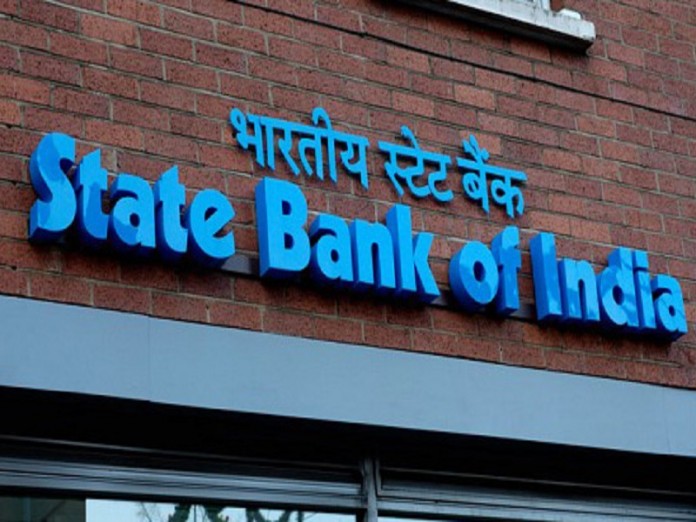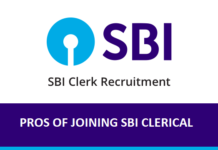How to Prepare for SBI PO 2016
 Dear Sehpaathians
Dear Sehpaathians
With Notifications for SBI PO 2016 are expected to be out in a few weeks, candidates need to start preparing for the same. It is expected that SBI will recruit over 2500 Probationary Officers in 2016. Like the preceding year it is expected that SBI will keep the paper pattern same and the examination will be held in 2 stages.
Phase 1: There will be 100 questions in the paper.
35 from Quant and DI
35 from Reasoning
30 from English
Phase 2: Candidates who clear the cutoff of phase 1 will be eligible for phase 2 examination. The constituents of Phase 2 will be
- English Language
- Reasoning and Computer Aptitude
- Data analysis and interpretation
- General awareness about economy/banking
Differences in Paper Pattern of SBI PO and IBPS PO
Both papers though constitute of 200 questions which are to be solved in a time span of 120 minutes, there is an elementary change in the constituents of the examination.
- In IBPS PO speed maths constitutes a large no of questions but in SBI PO speed maths is limited and more questions from data interpretation are asked
- In general Awareness Section, questions of marketing awareness comes in SBI PO. This section is absent from IBPS PO.
- In reasoning Questions on data Sufficiency are more in SBI PO, You need to practice them a lot.
- Usually the level of difficulty of SBI is similar to that of IBPS PO, but cutoff’s are high following lesser vacancies.
How to attempt the complete paper
While attempting SBI PO 2016 exam you will have 200 questions to solve and 120 minutes (The pattern very much similar to IBPS PO). It is definitely a race against time. It this scenario, the key to success is “Time Management and Question Selection”. Further in this post, we will guide you on what all aspects you must take care of while appearing for SBI PO 2016…
- We advice you to first attempt the section which is your area of strength. For example, it you are good with maths then attempt the quant section first and try to score maximum.
- As a general and widely followed approach, it is suggested to start with GK+Banking+ Marketing+Computer section as 50 questions of this section can be easily attempted in maximum 10-15 minutes depending on your reading speed. In this way you will be left with around 105 minutes to spend on 3 sections which averages around 35 minutes per section.
- Manage your time smartly and make right choices when deciding which question to attempt.
- Do not let your ego come into play when you are stuck at some question, just leave it there and move on to next one.
- Be smart, do not try to solve each and every question because not every question in the paper is supposed to be solved, some questions are put in the exam paper as a barrier with only purpose to engage you and waste your time. So be reasonable and identify those type of questions wisely so that you do not stumble upon them.
- English Section:- If you have healthy reading habit and possess good reading speed, you can definitely save some precious amount of time in this section which can be better utilized in any other section. This section can be seen as broadly divided into two parts with comprehensions on one side and rest (FIB, para-jumbles, sentence correction etc.) on the other side. Now its up to you to judge how you want to approach this section because you are the best judge of your knowledge and strengths. As a word of advice, if you are good with comprehensions then attempt them first and vice-versa
- Accuracy level matters very much. Do not attempt questions in haste and remember negative marking is there, so focus on question selection.
- Quant and Reasoning section: To perform well in these sections, practice as much as you can and again, chose questions wisely in these sections because the chances of tangling in a question are highest in these sections.
How to succeed in Data Analysis & Interpretation
- Data Interpretation questions are based on facts, tables, pie charts and diagrams. The more you practice such questions, the more will be comfortable in solving them. It is expected that 25-30 questions will be from this section.
- Data Analysis: This is a tricky section this year. Introduced in 2014 for the first time on the content of this section. As per our experiences and advice from coaching institute experts we have prepared the following probable list of type questions that may possibly be covered this section.
What type of questions can be there in Data Analysis
What Topics can be there in Reasoning
As per Notification of SBI, this year reasoning will be of high level. So according to our study and predictions these topics will constitute the syllabus:
- Arrangement Questions: 15 Marks (10 Of multi Hierarchy and 5 of Single Hierarchy
- Relationship Questions: 3-5 Marks
- Questions related to Assumption, conclusion and Inference: 10-15 Marks
- Pattern Following problems: 5 Marks
- Symbol Questionnaire problems: 5 Marks
- Questions related to Syllogism: 3-5 Marks
- Other: 5-10 marks
How to prepare for Reasoning
In reasoning the questions are either single or in form of multiple questions. Try to solve the multiple questions first and figure out the simple questions. The points you must take care while attempting reasoning section are:
- Don’t waste much time on questions where you have any doubt as this may result in you getting stuck and lose time.
- Refrain from solving very lengthy questions if it looks difficult at first sight. First solve those you are confident about and then come back to solve these, if time allows
- Practice the ‘assumption, conclusion and inference type questions’ properly. They may constitute a large part of this section.
- Practice puzzle and sequence following questions. If you properly attempt these questions you can add at least 10-15 marks to your score card.
- Practice syllogism questions as there is hardly any aptitude exam in which these questions are not asked in reasoning section.
What can be there in General Awareness section
In SBI PO exam, GA section is not purely based on questions from general knowledge or current affairs, but instead it is a mix of:
- Questions related to General Knowledge/Current Affairs ( last 6 to 12 months)
- Questions Related to Banking Awareness
- Questions related to Marketing knowledge
- Questions related to Computer Awareness.
How To Prepare yourself for General Awareness section: Click here
Phase 2: Descriptive Exam
In SBI PO exams a descriptive test is also held which is worth 50 marks and has a cut-off of its own. The probable contents and expected marks distribution for this section are as follows:-
- Comprehension 5-10 marks
- Letter (Formal and Informal) 10-20 marks
- Essay writing 10 marks
- Précis Writing 10 marks
- Summary 5 marks






















